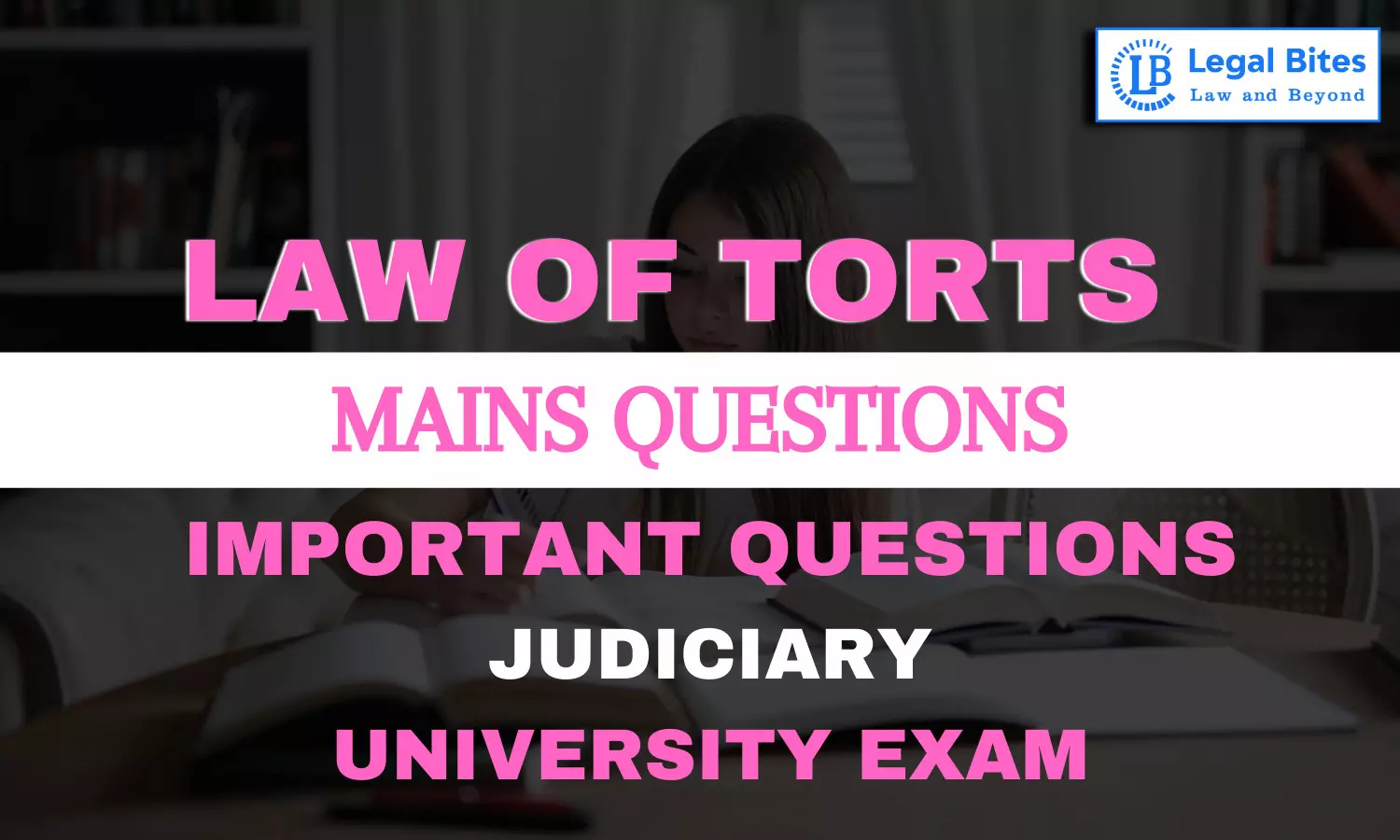'Slander is actionable per se'. Evaluate
Find the question and answer of Law of Torts only on Legal Bites.

Question: 'Slander is actionable per se'. Evaluate [BJS 1977]Find the question and answer of Law of Torts only on Legal Bites. ['Slander is actionable per se'. Evaluate]AnswerSlander is a type of defamation that involves making a false and damaging statement about someone to a third party. In some jurisdictions, slander is considered "actionable per se," which means that the plaintiff does not need to prove that they suffered any specific harm as a result of the statement. Instead, the...
Question: 'Slander is actionable per se'. Evaluate [BJS 1977]
Find the question and answer of Law of Torts only on Legal Bites. ['Slander is actionable per se'. Evaluate]
Answer
Slander is a type of defamation that involves making a false and damaging statement about someone to a third party. In some jurisdictions, slander is considered "actionable per se," which means that the plaintiff does not need to prove that they suffered any specific harm as a result of the statement. Instead, the law presumes that the statement is inherently harmful and therefore the plaintiff is entitled to damages without having to provide further evidence of harm.
The concept of slander being actionable per se is based on the idea that certain types of false statements are so inherently harmful that they do not require further proof of harm. These include statements that:
- Accuse someone of committing a crime.
- Impute serious sexual misconduct.
- Suggest that someone has a contagious or infectious disease.
- Imply that someone is unfit or incompetent in their profession or trade.
- If a plaintiff can prove that a statement falls into one of these categories, they may be able to recover damages without having to show any additional harm.
Here are some examples of case laws that illustrate the concept of slander being actionable per se:
An accusation of Crime: In the case of New York Times Co. v. Sullivan, 376 U.S. 254, the plaintiff, a police commissioner in Montgomery, Alabama, sued the New York Times for publishing an advertisement that accused him of committing violent acts against civil rights protesters. The court held that the plaintiff could not recover damages without showing actual malice on the part of the defendant. However, the court also noted that false statements accusing someone of committing a crime are inherently harmful and may be considered slander per se in other jurisdictions.
Serious Sexual Misconduct: In the case of Brooks v. Garfield Memorial Hospital, 78 Ill. 2d 150 (1979), the plaintiff, a nurse, sued the defendant hospital for slander after she was falsely accused of having sexual relations with a patient. The court held that the statement was slander per se because it imputed serious sexual misconduct to the plaintiff, and she did not have to prove any additional harm to recover damages.
Contagious Disease: In the case of King v. Lewis, [2004] EWCA Civ 1329, the plaintiff, a schoolteacher, sued the defendant for slander after she was falsely accused of having a contagious disease. The court held that the statement was slander per se because it suggested that the plaintiff was unfit to teach, and she did not have to prove any additional harm to recover damages.
Unfit or Incompetent: In the case of Shu-Tao Lin v. McDonnell Douglas Corp., 574 F. Supp. 1407 (1983), the plaintiff, an engineer, sued the defendant for slander after he was falsely accused of being incompetent in his job. The court held that the statement was slander per se because it suggested that the plaintiff was unfit to work as an engineer, and he did not have to prove any additional harm to recover damages.
However, it is important to note that not all false statements that fall into these categories will be considered slander per se. In some jurisdictions, the plaintiff may still have to prove that they suffered some actual harm as a result of the statement.
In addition, it is worth noting that slander per se is a legal term of art and its application can vary by jurisdiction. Some jurisdictions do not recognize slander per se at all, while others may have different categories of statements that are considered inherently harmful.
Overall, the concept of slander being actionable per se recognizes that certain types of false statements are so inherently harmful that they do not require further proof of harm. If a plaintiff can prove that a statement falls into one of these categories, they may be able to recover damages without having to show any additional harm.

Mayank Shekhar
Mayank is an alumnus of the prestigious Faculty of Law, Delhi University. Under his leadership, Legal Bites has been researching and developing resources through blogging, educational resources, competitions, and seminars.
